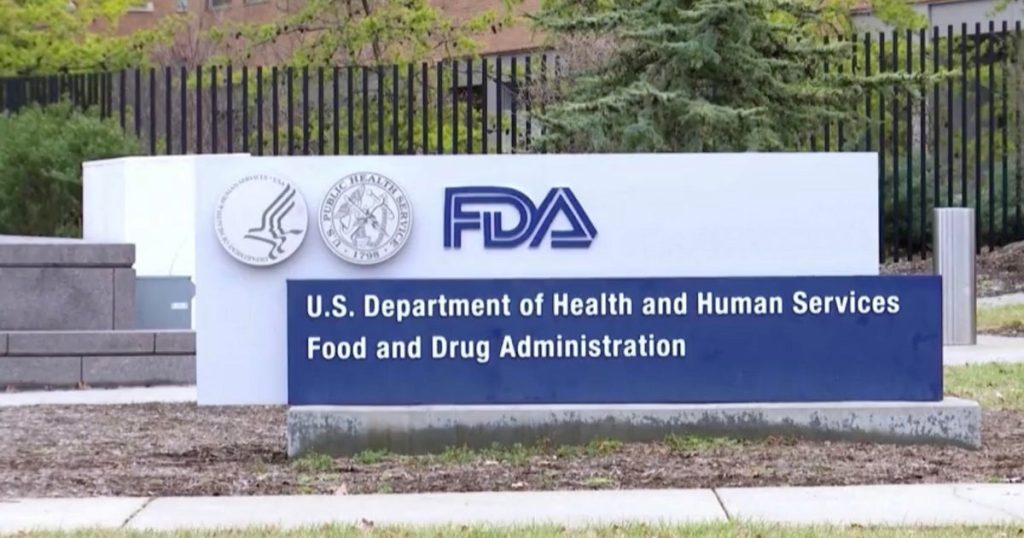The Food and Drug Administration (FDA) has announced that it will continue to authorize updates to COVID-19 vaccines specifically for seniors and individuals at higher risk of severe disease. However, new requirements necessitate that vaccine manufacturers conduct major clinical trials before broader approvals can be granted. As a consequence, many Americans who do not fall into high-risk categories may find themselves without access to the newest vaccine formulations.
| Article Subheadings |
|---|
| 1) FDA’s Decision on Vaccine Updates |
| 2) New Requirements for Vaccine Approvals |
| 3) Criticism of Previous Vaccine Policies |
| 4) Implications for Vaccine Accessibility |
| 5) Future of COVID-19 Vaccinations |
FDA’s Decision on Vaccine Updates
On October 5, the FDA confirmed its commitment to continue approving adjustments to COVID-19 vaccines aimed at high-risk populations, particularly seniors. This decision reflects a focused approach to public health during a pandemic. The vaccine updates signal the agency’s intent to ensure that those most vulnerable receive the necessary protection.
Officials indicated that while the risks for these specific groups are clear, the ongoing pandemic continues to pose varying levels of threat to different populations across the United States. This selective approval underscores a shift from a one-size-fits-all strategy to a more tailored approach. In light of evolving variants, public health officials emphasize the importance of vigilance regarding vaccine efficacy, particularly within at-risk demographics.
New Requirements for Vaccine Approvals
Vaccine manufacturers are now required to undertake “randomized, placebo-controlled trials” before applying for broader vaccine approvals. This new criterion signifies a shift in how the FDA evaluates vaccine applications, aimed at gathering robust data on their effectiveness among lower-risk populations. Lasting implications for the approval process may arise through such stringent measures.
The advances in vaccination protocols stem from ongoing concerns about the effectiveness of the vaccine against emerging variants of the virus. By employing rigorous testing procedures, the FDA aims to enhance public confidence in vaccine safety and efficacy, thereby reassuring both healthcare providers and the general populace.
Criticism of Previous Vaccine Policies
The FDA’s leadership has recently criticized the broader regulatory framework that was previously employed for COVID-19 vaccine approvals. In an article published in a reputable medical journal, officials pointed out that past policies allowed for a more generalized authorization of boosters, which may have resulted in lower rates of uptake among the general population.
Highlighting examples from other developed countries, the FDA officials argued for narrower policies similar to those already in place that limit vaccinations mainly to older adults and individuals with underlying health conditions. “The U.S. policy has sometimes been justified by arguing that the American people are not sophisticated enough to understand age- and risk-based recommendations. We reject this view,” they wrote in their publication. This statement reflects a commitment to transparency and adaptation based on evidence-based practices.
Implications for Vaccine Accessibility
The narrower criteria for vaccine approvals could pose significant challenges for individuals who do not fall into the high-risk categories. Public health authorities estimate that the new guidelines may mean limited access to updated vaccines for around 100 to 200 million Americans. This restriction raises questions about equitable access to vaccine resources, which may inadvertently exacerbate existing health disparities.
The Centers for Disease Control and Prevention (CDC) is also evaluating its recommendations concerning vaccination, which directly affect insurance coverage and access. If these narrower guidelines are adopted, health insurers could limit coverage for vaccines provided outside the FDA’s specifications, ultimately impacting family finances and health management strategies.
Future of COVID-19 Vaccinations
The FDA’s revised framework precedes an important meeting of external vaccine advisors scheduled for later this week, where decisions regarding the strain updates for future vaccinations will be discussed. This meeting underscores the evolving landscape of public health measures in response to the ongoing pandemic.
Moreover, as health officials grapple with the complexities of COVID-19, the possibility of conducting large-scale clinical trials remains uncertain. Should these trials be implemented promptly, they could lead to timely data generation that informs the FDA’s upcoming decisions. Officials indicated that summer transmission patterns could provide unique opportunities for effective study designs and results.
As discussions on these new protocols progress, the landscape of COVID-19 vaccinations remains dynamic, with significant health implications for different demographics throughout the United States.
| No. | Key Points |
|---|---|
| 1 | The FDA will continue to authorize COVID-19 vaccine updates for seniors and higher-risk groups. |
| 2 | Vaccine makers must conduct major clinical trials for broader vaccine approvals. |
| 3 | Criticism directed at previous one-size-fits-all regulatory frameworks for vaccinations. |
| 4 | Tighter regulations could limit access to updated vaccines for healthy individuals. |
| 5 | Future meetings are set to discuss potential vaccine strain updates amid evolving threats. |
Summary
The recent announcement by the FDA marks a significant transition in how COVID-19 vaccinations will be managed, particularly in terms of risk-based access and the necessity of rigorous trials for wider approval. As the nation moves forward in its response to the pandemic, the implications of this new regulatory framework will affect millions of Americans in their quest for adequate vaccine protection.
Frequently Asked Questions
Question: What did the FDA decide regarding COVID-19 vaccine updates?
The FDA decided to authorize updates to COVID-19 vaccines for seniors and higher-risk individuals while requiring vaccine manufacturers to conduct major new clinical trials for wider approval.
Question: What are the new requirements for vaccine manufacturers?
Vaccine manufacturers must perform randomized, placebo-controlled trials to gather robust data before broader vaccine approvals can be granted.
Question: How will the new regulations impact vaccine accessibility?
The new restrictions may limit access to updated vaccines for healthy individuals, potentially affecting up to 200 million Americans who do not qualify as high-risk.


